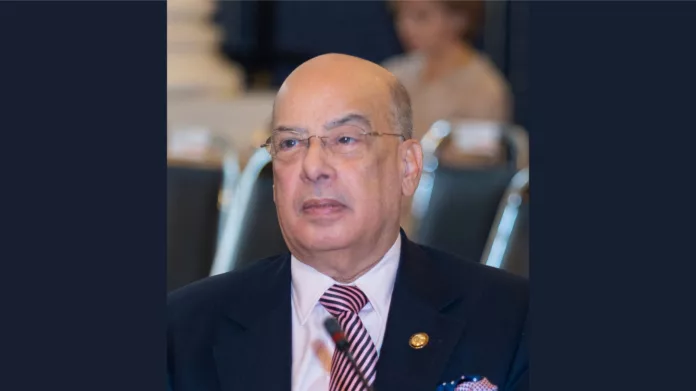By Robert A Emmanuel
Antigua and Barbuda’s most senior diplomat to the Organisation of American States (OAS) has questioned the role of the US and France as the United Nations approved an independent Kenya-led multinational mission to the violence-stricken nation of Haiti.
The UN Security Council approved the Multinational Security Support (MSS) mission on Monday by 13 votes with two abstentions. It will be in force for one year, with a review after nine months.
The mission will be led by Kenya, with support from Antigua and Barbuda, Suriname, Jamaica and the Bahamas, while the US State Department has said they will provide $100 million in foreign assistance, and the Department of Defense is prepared to provide up to $100 million in enabling support.
Speaking to Observer media on whether more Caribbean countries should be supporting the mission, Sir Ronald Sanders gave his opinion, stating that France should also support the mission due to the historical consequences of slavery.
“If you look at the culprits for the people who are really responsible for Haiti’s underdevelopment and its condition—those two countries have been France and the United States of America—and yet the focus seems to be on the Caribbean in sending troops when these two countries which themselves have been responsible for the plight in which Haiti finds itself … for over a century and they have not pledged any troops,” he explained.
Several historians have tied Haiti’s underdevelopment to the efforts of the United States and France in the 19th century to isolate and bankrupt the resource-rich island.
Following the slave-led revolution from France, the newly independent nation was forced to pay reparations to France and the United States.
“All the Americans want to do is put up money for other people to go, and that is a fundamental question that I think needs to be asked: why are they not doing it? Why are they looking to the Caribbean to do it? Why are they looking to Africa? Is this suddenly a Black problem?” he said.
The diplomat, who has chaired numerous meetings on the situation in the Caribbean nation since 2016, said that Caribbean countries – with limited financial and personnel resources and little responsibility for the situation in Haiti – should not be asked to bear the brunt of solving the crisis.
“I am not saying that the Caribbean ought not to be playing a role; we certainly should but I don’t know if our role ought to be that.
“I have been saying that the Caribbean role should be one of diplomatic support for the issues that fundamentally affect Haiti and that is its underdevelopment, its need for resources to be handled properly, the need to end corruption, the need to put in administrative structures, the need to focus on education, health, infrastructure,” Sir Ronald stated.
He added that there was a security challenge relating to the gangs who have practically controlled the Haitian capital of Port-au-Prince since the July 2021 assassination of the country’s President, Jovenel Moïse, but noted that a democratically elected government needs to be in place first.
“Right now, in Haiti what we have is a government that is not elected and therefore does not have any electoral basis or confidence of the people,” he indicated.
Meanwhile, questions remain over the plans for the Haitian mission, following its approval by the UN.
Kenya has pledged that it will send 1,000 troops to Haiti to support the 10,000 police and military officials in the country with a population of 11 million.
The force would be allowed to provide operational support to Haiti’s National Police, which is under-funded and under-resourced.
The mission would also help build the capacity of local police through the planning and conduct of joint security support operations to counter gangs and improve security conditions in Haiti.
As it relates to the role of the OAS in the Haiti mission, Sir Ronald said the organisation will be simply observing the situation.
“So, it’s not that we are going to be initiating any action, but we will accompany the process and watch it carefully for matters in which the OAS might be helpful,” he explained.
In Kenya, some parliamentarians have demanded that approval be sought from the Kenyan parliament before the deployment, whilst others have said that Kenya should focus on dealing with its own internal security challenges before leading a mission to Haiti.
Additionally, the main opposition leader in Kenya, Raila Odinga, has told Kenyan media that he believes that the situation in Haiti is too dangerous to send in police officers.

